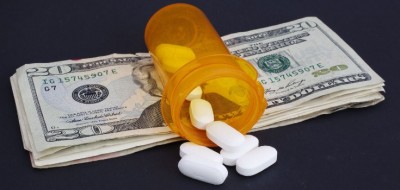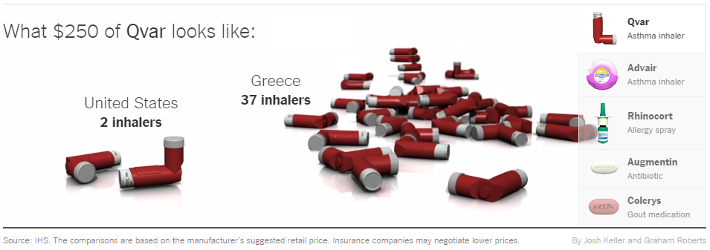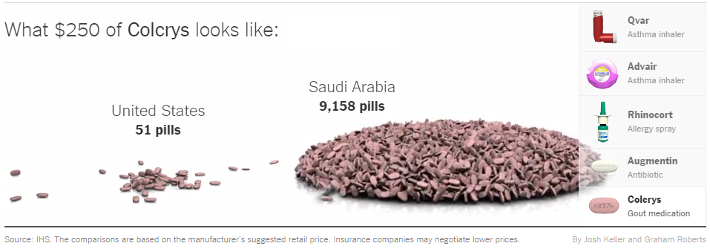Big Pharma ‘Repatenting’ Raises Prices of Top Drugs by More than 6 Times
Without any actual advancements of any kind

What happens when mega pharmaceutical companies get their new grip around one of the oldest asthma medications that many rely on for daily use? Based on historical data, it appears that one of the first action items is to exponentially increase the price of the same medication without any actual advancements of any kind. It’s a process that is involved with ‘repatenting.’
The art of repatenting is one that massive corporations absolutely love. When the drug companies own the patent rights to a formula, even if it is virtually the same as a generic one or has been sold for far less over the last several decades, they can charge you (and your insurance company) whatever they want. And in the case of the highly popular asthma drug albuterol, even the New York Times has reported on the absurd price increase following its ‘repatenting.’
IMAGE CREDIT: THE NEW YORK TIMES
In an article back in 2013 on the publication’s featured news, author Elisabeth Rosenthal explains:
“Albuterol, one of the oldest asthma medicines, typically costs $50 to $100 per inhaler in the United States, but it was less than $15 a decade ago, before it was repatented.”
And it’s not just albuterol. It’s a host of pharmaceutical creations.
“But many generics are still expensive, even if insurers are paying the bulk of the bill. Generic Augmentin, one of the most common antibiotics, retails for $80 to $120 for a 10-day prescription ($400 for the brand-name version). Generic Concerta, a mainstay of treating attention deficit disorder, retails for $75 to $150 per month, even with pharmacy discount coupons. For some conditions, including asthma, there are few generics available.
While the United States is famous for break-the-bank cancer drugs, the high price of many commonly used medications contributes heavily to health care costs and certainly causes more widespread anguish, since many insurance policies offer only partial coverage for medicines.
In 2012, generics increased in price an average of 5.3 percent, and brand-name medicines by more than 25 percent, according to a recent study by the Health Care Cost Institute, reflecting the sky-high prices of some newer drugs for cancer and immune diseases.”
IMAGE CREDIT: THE NEW YORK TIMES
And as these pharmaceutical juggernauts raise prices across the board just because ‘they can,’ they are sure not to tell you about the countless natural substances that have been found time and time again to be extremely beneficial in the fight against disease.
As pharmaceutical industries continue to raise prices in attempts to fill their overflowing wallets with consumer cash, it’s always essential to look for natural alternatives and push for ways to ensure that you won’t need their chemical intervention in the first place.
Follow us: @naturalsociety on Twitter | NaturalSociety on Facebook



